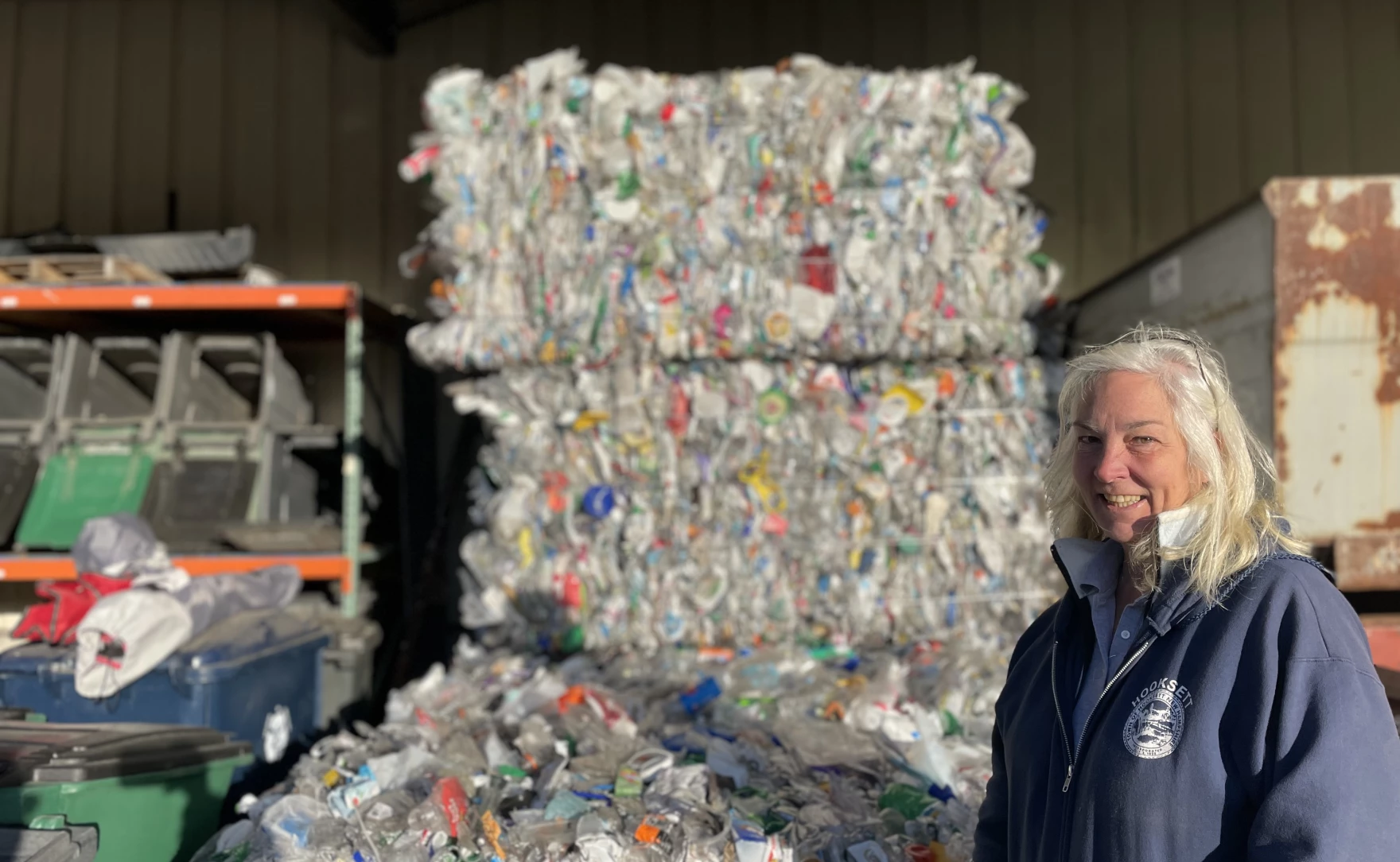Some New Hampshire towns are making more money on recycling than in previous years. What’s changed?

Denise Cumings, crew chief, stands in front of a bale of recycling at the Hooksett Transfer Station in New Hampshire. (Mara Hoplamazian/ NHPR)
The transfer station in Derry, N.H., is full of neatly organized piles of everything residents don’t want. Old couches, discarded Halloween decorations, and tidy mounds of plastic, cardboard, glass, and aluminum.
Mike Fowler, the director of public works for the town of Derry, says it wasn’t always this way. In 1991, the town passed an ordinance to make recycling mandatory, just as the transfer station built in the early 1980s was starting to overflow.
The goal was to cut down on the amount of trash that had to be put into a landfill or an incinerator. “Everybody just threw it into cans or bags, and it just all went into the trash stream,” Fowler said. “But as time went on, people understood that they could separate their paper or their cardboard, and we started to find markets for that and made a little bit of money.”
He says that money has helped the town offset taxes. And right now, Derry and other New Hampshire towns are making a lot of money off recycling. Fowler says the prices municipalities are able to get are about double what they were four years ago, which is good for the bottom line in Derry’s town budget.
This is a big change. Not that long ago, some towns were looking at shutting their recycling operations down.
In 2018, China made the decision to stop accepting a lot of recyclables – especially those that were contaminated – from the US and other places. That left communities in the US scrambling for markets where they could sell their recyclable goods.
For the rest of this story, including the audio version, please visit NHPR.org.
